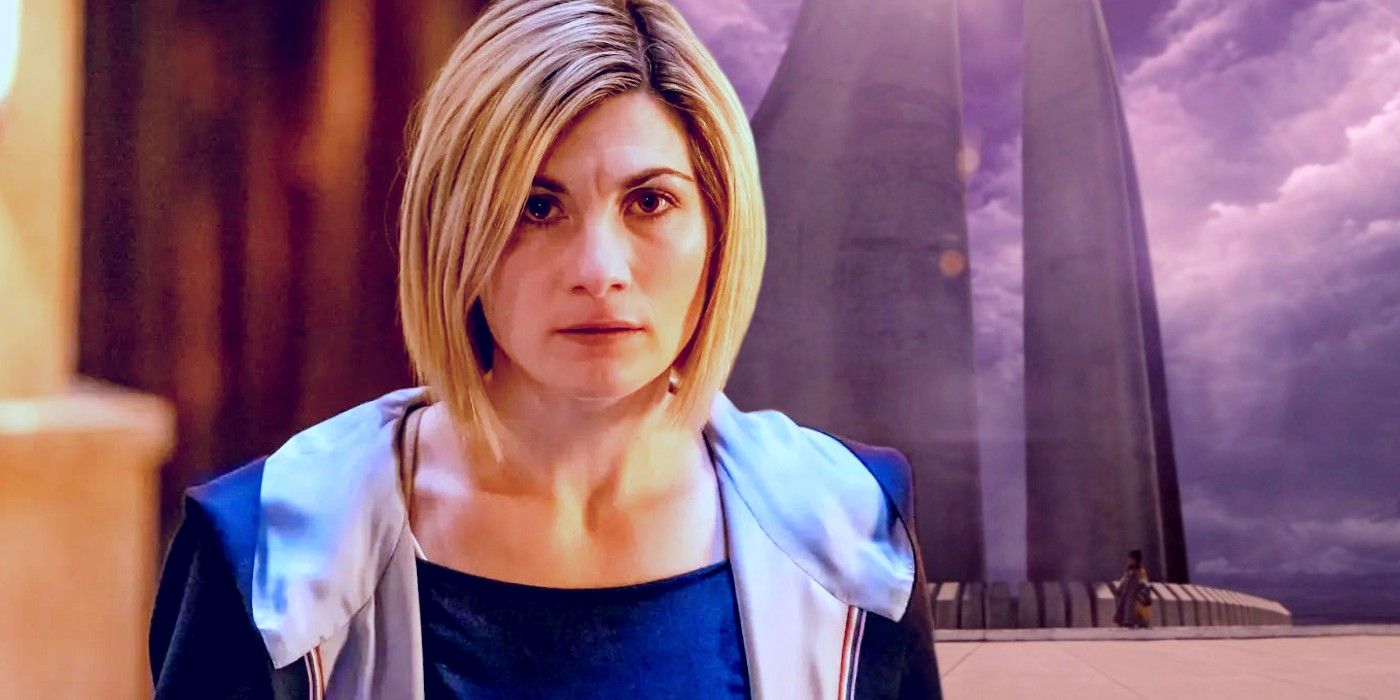
Despite a deeply partisan reaction to season 12's Timeless Child revelation, Doctor Who's Flux storyline has conspired to deal an even bigger blow to the iconic sci-fi franchise. To say Chris Chibnall (current Doctor Who showrunner) took a major gambit on his Timeless Child idea would be an understatement of TARDIS-sized proportions . Triggering the mystery as early as Jodie Whittaker's second episode, Doctor Who waited until season 12's finale before answering Thirteen's overarching enigma. As it turned out, the Timeless Child was The Doctor herself - a young girl who fell from another universe, and whose biology was exploited to become the very foundation of Time Lord society.
Needless to say, reaction to Doctor Who's Timeless Child was swifter than an unseen Weeping Angel, and just as merciless. Audiences took umbrage with how The Doctor's backstory was rewritten, and how uncomfortably the retcon sat within existing lore. Season 12's Timeless Child marked Doctor Who's most divisive TV moment in almost 60 years - season 13's finale couldn't be anywhere near as problematic, surely?
Fast-forward to Doctor Who: Flux, and the fog hanging over Britain's favorite time traveler is only getting heavier. Though the season as a whole comprised highs and lows, Doctor Who: Flux's final episode leaves an imprint arguably more damaging than anything the Timeless Child managed.
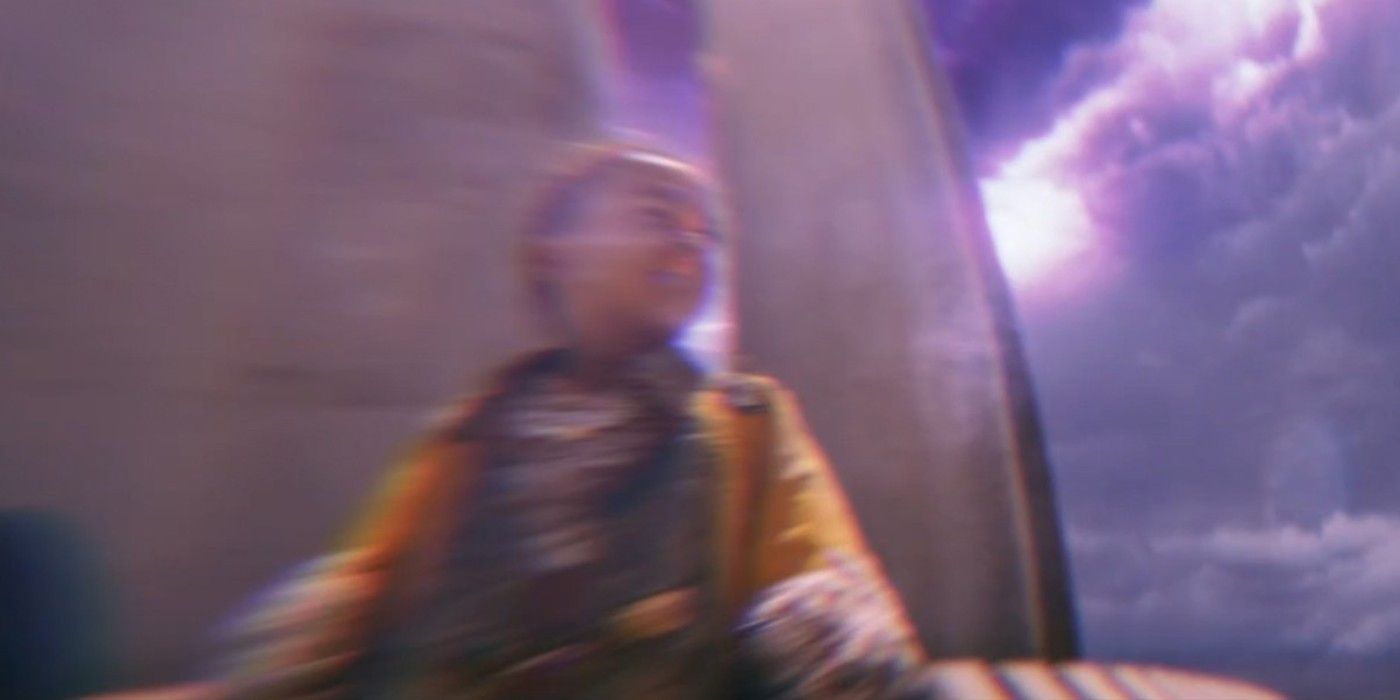
Many Doctor Who viewers accused the Timeless Child of making little sense. Some interpreted the retcon as an insult to William Hartnell's First Doctor. Others criticized Chris Chibnall for rewriting that which did not require rewriting. Absolutely no one said (with a straight face, at least) that the Timeless Child's payoff was underwhelming.
As a mystery that ran for over two whole seasons, the Timeless Child's endgame needed to pack a wallop, and nothing hits harder than altering the very foundations of Doctor Who. Taking a "go big or go home" approach, Chibnall's Timeless Child - for better or worse - affected every single corner of Doctor Who's mythos. While you can question the wisdom of making such wholesale changes to a franchise loved by so many, the Timeless Child was at least boldly ambitious, and as an answer to a long-running, multi-season mystery, the destination more than justified Doctor Who's extensive build.
And while reactions to the Timeless Child ranged from thoughtful befuddlement to mouth-foaming rage, there was a palpable undercurrent of curiosity. Opinion was split into those willing to let the Timeless Child play out before casting judgement, and those who expected Doctor Who would trip over its own feet trying to make the retcon fit. Precious few considered the Timeless Child a fantastic and worthy addition to Doctor Who mythology, but emotions were passionate and, more importantly, people were talking all the way from season 12 to season 13.
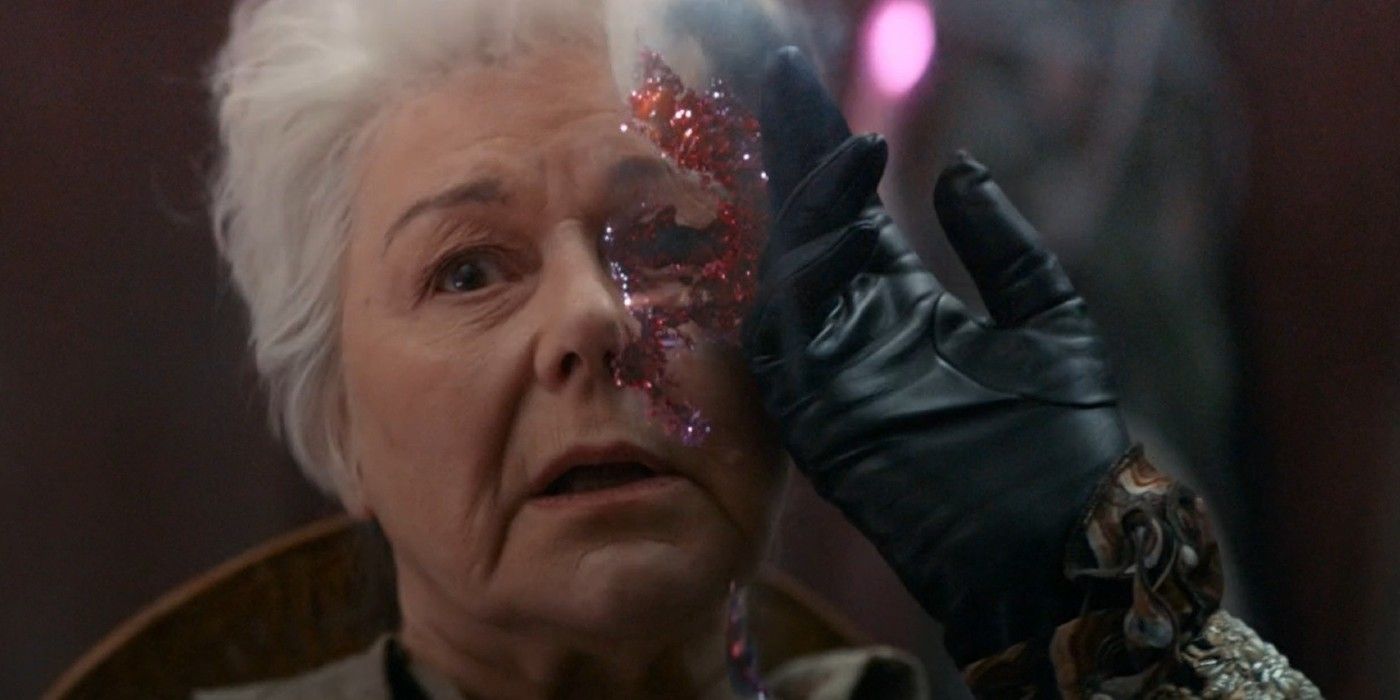
The conclusion to Doctor Who's Timeless Child mystery wasn't the answer many expected, nor was it the ending they hoped for. The Timeless Child was, however, an answer, which is where Doctor Who: Flux begins to fall down. Not only did Doctor Who: Flux (essentially season 13) represent the first real opportunity to respond after season 12's Timeless Child explanation - it also marked Chris Chibnall's final full season as showrunner. Combine that with the "one big story" format and the distinct aura of a landmark event series, and Doctor Who: Flux had no alternative but to provide meaningful context behind the Timeless Child. Or so viewers thought.
Expecting Doctor Who: Flux to answer every aspect of the Timeless Child retcon was always unrealistic, but the mini-season goes out of its way to avoid all of season 12's big questions. Where did The Doctor come from? How many times has she regenerated? What connection does she hold to Doctor Who's parallel universe? Doctor Who: Flux works spectacularly hard to defer responsibility by killing off Tecteun, throwing away the Chameleon Arch fob watch, and giving Karvanista a Saw-esque brain trap that activates if he spills the Lupari beans.
Doctor Who: Flux was, by far, the best chance to begin tackling those meaty questions, and willfully refusing leaves Chris Chibnall the all-but-impossible job of wrapping everything up within a mere 2 episodes (plus a Dalek-happy New Year's special). Doctor Who: Flux shirking its duty to address the Timeless Child has the more devastating consequence of killing the one advantage season 12's dramatic retcon held - intrigue. Whether out of hope or morbid curiosity, Doctor Who viewers still wanted to witness how the Timeless Child storyline developed. By essentially choosing not to develop it, Doctor Who: Flux has a deflating aftertaste, and signals concrete answers about The Doctor's origin won't arrive any time soon... if ever.
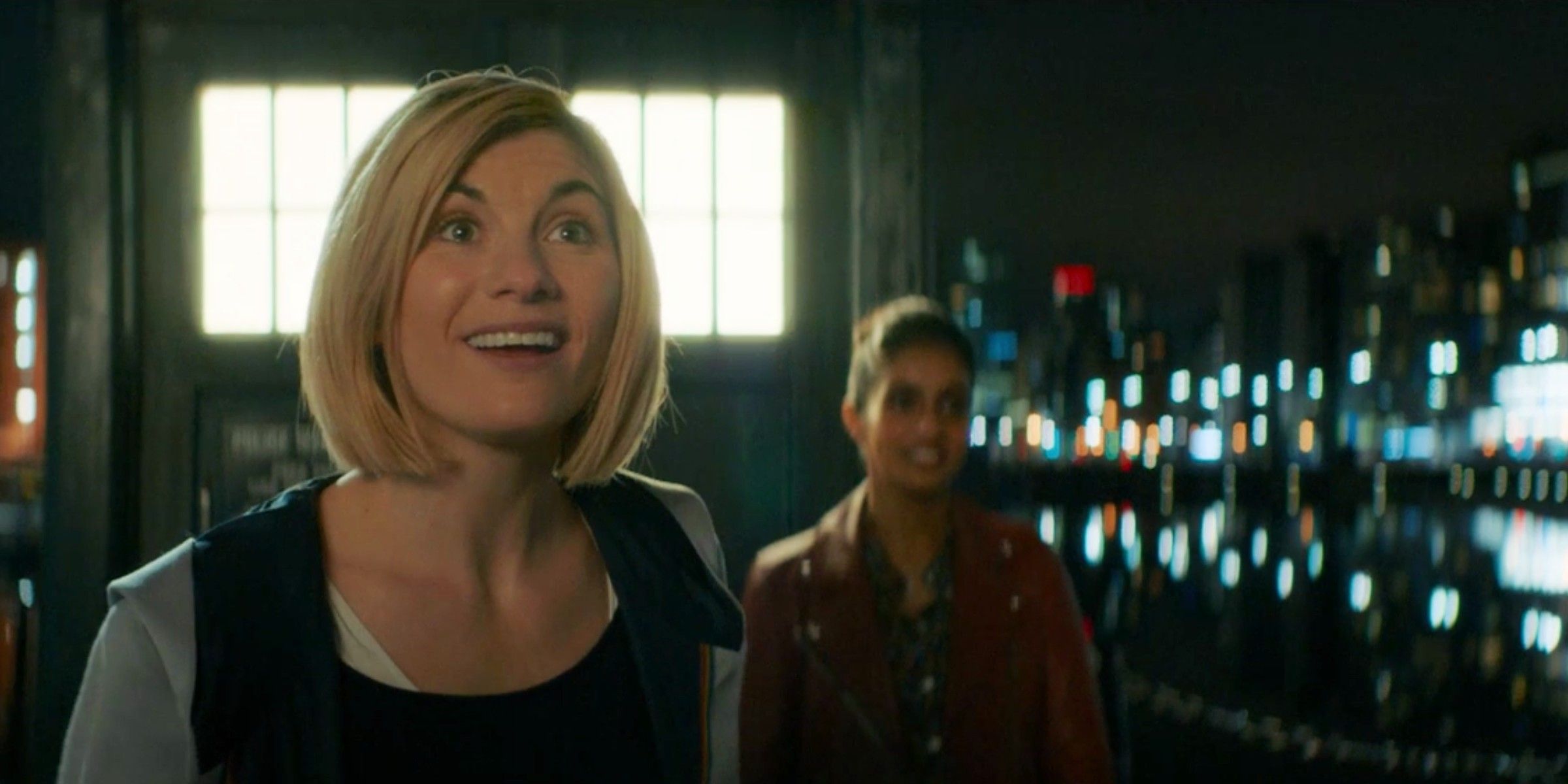
Doctor Who: Flux avoids answering the Timeless Child like a politician questioned about an illegal Christmas party, but that'd be easier to forgive if the central season 13 story was a cohesive and engaging six-part adventure in its own right. Sadly, it wasn't.
"The Halloween Apocalypse" kicked off Doctor Who: Flux to the chorus of one overriding criticism - the chaotic narrative was scattered, confusing and relentless. The premiere's sole defense was the burden of setup on its shoulders. Doctor Who: Flux was very clearly laying the board for bigger things to come, and as the season continued with "Once, Upon Time" and "Survivors of the Flux," the sensation that something big was rapidly approaching only grew. Timeless Child aside, Jodie Whittaker's Thirteenth Doctor faced an unprecedented universe-ending cataclysm, a pair of powerful new adversaries in the Ravagers, and a super-secretive Gallifreyan cabal trying desperately to kill her. If those plot threads could all come together in satisfying fashion, the lack of Timeless Child movement wouldn't have been so tough to swallow.
Whereas season 12's conclusion matched the hype of Chris Chibnall's Timeless Child mystery (even if it divided viewers along the way), the Doctor Who: Flux finale represents an underwhelming end to the season-long build. The Flux wave itself is comfortably one of the biggest threats The Doctor has ever faced, but Thirteen's solution is little more than an overly-convoluted switch-flip - seize the Sontaran controls, fire a few lasers, job done. Her plan could've capped-off any modern Doctor Who episode, lacking the ingenuity or sacrifice expected from a lore-laden six-part event season. The omniscient Division, meanwhile, drops off the radar completely after Tecteun's death, letting The Doctor halt their precious Flux in its tracks.
The failures of Doctor Who: Flux's finale continue to pile up. Main antagonist duo, Swarm and Azure, are dealt with via a literal hand wave. There's no deeper meaning behind the Grand Serpent, Bel and Vinder are just ordinary people, and Jericho's death is cruelly glossed over. Nobody acknowledges that The Doctor effectively commits triple-genocide against the Daleks, Sontarans and Cybermen, and nor do they mention how stopping the Flux failed to rectify the massive damage already done to our universe. Doctor Who: Flux bows out making plenty of noise, but says very little, and though some of those loose threads may be addressed further down the line, that doesn't help the incomplete rush-job of an ending to season 13.
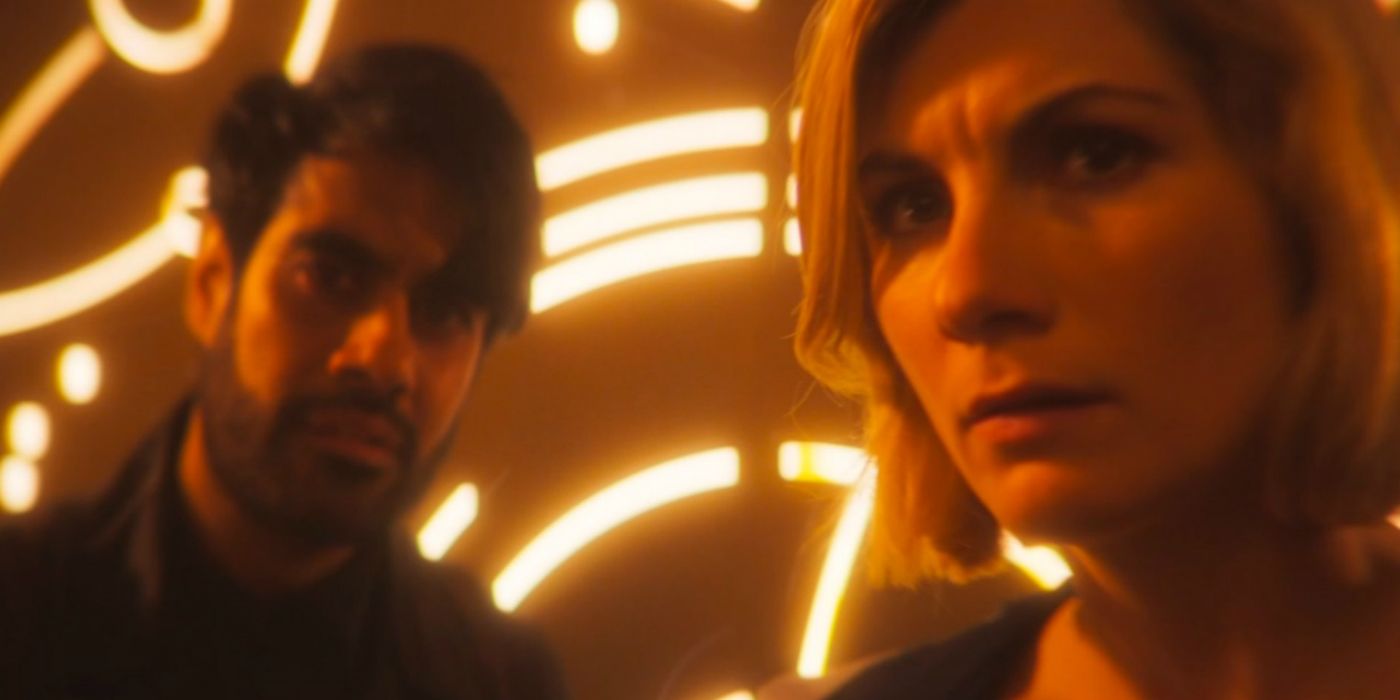
Much has been said and written about Chris Chibnall's "tell, don't show" Doctor Who style, and the Timeless Child exemplified that criticism. Season 12's finale involved The Master narrating one, long bedtime story to a captured Doctor to reveal her past and the true beginning of the Time Lords. Despite the bells and whistles, Doctor Who's Timeless Child reveal was an undeniable info-dump of the highest order.
Rather than learning from those mistakes, Doctor Who: Flux relies even more on extensive exposition and clunky in-dialogue explanation. As mentioned, season 13's "The Halloween Apocalypse" premiere drowned under the fraught rush to introduce far too many characters and plot points. That could've been forgiven if getting the heavy lifting done early meant "The Vanquishers" could bring everything together more smoothly in the end.
Instead, Doctor Who: Flux's dialogue is almost entirely comprised of various characters trying breathlessly to explain the plot - so much so, a cheap plot device to let Jodie Whittaker be in three places at once is required. With the exception of two remarkable, standout scenes (The Doctor's Grand Serpent interrogation and Whittaker's TARDIS conversation with Yaz), development of character makes way for near-constant narration. Season 12's Timeless Child info-dump seems positively light in comparison, and while scientific waffle has always been part of Doctor Who's DNA, the intensity of Flux's exposition - combined with the relative lack of reward - could prove far more damaging.
from ScreenRant - Feed https://ift.tt/3dEyAvX

0 Comments